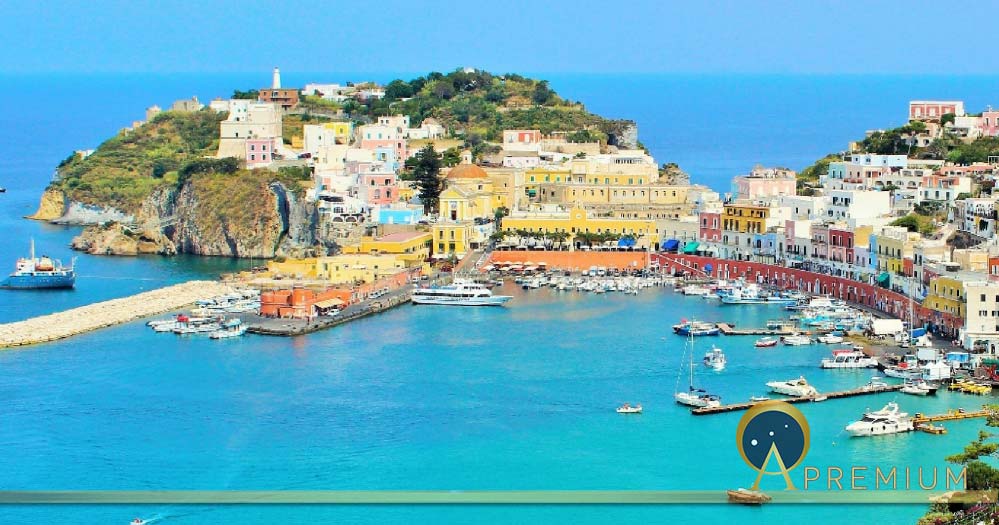The Curious Roman Cult of the Moray Eel on the Island of Ponza
A mysterious cult in which moray eels decided the fate of men existed on Ponza island, in the Tyrrhenian sea off the coast of Italy, during the first century AD at the so-called ‘Caves of Pilate’. "They ran the delicate moray eels to eat the delicacies offered to them by the visitors: they were salted fish, fresh crushed fruit, shiny crumbs of fresh bread, favorite morsels and in the manner they approached, or rejected with a blow of the tail the delicacies offered, the relegated believed to interpret the future events of their own fate," writes Monsignor Luigi Maria Dies in his book Ponza, perla di Roma: guida storico-tutristica dell'isola di Ponza nel Tirreno (1950). One must take into consideration that the never completely understood Pontius Pilate had nothing to do with the beautiful island and that his name has been undeservedly linked to the magnificent remains of the Augustan villa.

Ponza and the Pontine Islands (CC BY-SA 3.0)
Historical Background of Ponza Island
Pliny the Elder, the wise author of the Naturalis Historia, written between 23 and 79 AD, in Liber IX expands even more on this curious ‘Cult of Moray Eels’ that was practiced on the island of Ponza. In 313 BC the omnipresent Romans granted the island of Ponza the privilege of becoming a Latin Colony, which just under a century later became one of the 18 colonies that came to the aid of Rome, the Eternal City, during the Second Punic War fought against Hannibal. Rome did not forget the loyalty of the islanders and freed them from all taxes and in 89 BC bestowed upon the island the Civitas Romana optimum iure.
Years passed and Gaius Julius Caesar Augustus himself was transferred to Ponza island as a place of confinement. His only daughter Julia as well as his mother Scribonia, were also exiled to the islands for having violated the Lex Iulia de pudicizia et de coerendis, issued in 18 BC by Octavian Augustus in an effort to stem the rampant immorality in Rome. Thus, with one excuse or the other, the Pontine islands were often used precisely to confine dangerous claimants to the throne or people who were banned from court, such as Nero Julius Caesar, son of Germanicus and Agrippina Major, born in Ponza in 6 AD, who spent long years in exile on the island until he committed suicide in the year 30 AD.
READ MORE…
Like this Preview and want to read on? You can! JOIN US THERE ( with easy, instant access ) and see what you’re missing!! All Premium articles are available in full, with immediate access.
For the price of a cup of coffee, you get this and all the other great benefits at Ancient Origins Premium. And - each time you support AO Premium, you support independent thought and writing.
Dr Roberto Volterri is the author of 40 books including L’Ombra Della Clessidra / In the Shadow of the Hourglass (Italian)
Top Image: Harbor view of the island of Ponza (Marja /Adobe Stock)


















